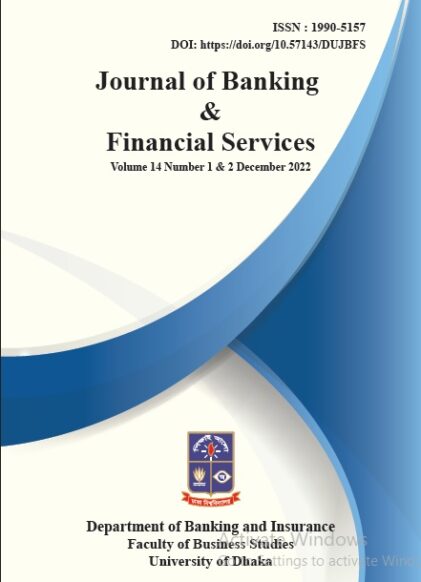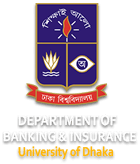Employee Perception on the Impact of Knowledge Management on Organizational Performance: A Study on Academic and Non-Academic Staff in the Higher Education Sector of Bangladesh

Md. Mesbah Uddin, PhD1, Farha Sultana2
Published: 8 December, 2022
Journal of Banking & Financial Services
Volume 14 Number 1 & 2 December 2022
DOI : https://doi.org/10.57143/JBFS130110
ISSN : 1990-5157
Abstract
The primary focus of the study is to ascertain whether there is a clear relationship between knowledge management (KM) and organizational performance (OP) by looking at the impacts of universities. Because of the sharper competition in the education sector, educational institutions must adopt knowledge management to be effective. Knowledge management methods employed at the Bangladeshi universities are still inadequate to fulfill ambitious priorities; KM practices must be improved from a variety of structural, facility, and cultural perspectives among academic actors. In this study, a survey method is employed with a questionnaire to gather primary data. Target populations of the study were academic and non-academic members of staff of some selected universities of Bangladesh. Three hypotheses were proposed and evaluated through using partial least squares structural equation modeling technique. Findings of the study revealed that knowledge management has a positive impact on performance of the higher educational institutions. The research also discovered that knowledge management has a significant impact on organizational performance which, ultimately, improves the educational performance. However, Knowledge sharing between the universities and the faculties are acute in Bangladesh. In order to deal with the contemporary methods and approaches, efficiency of the academic staff must be improved. It is recommended that academic institutes and other organizations use knowledge management to effectively achieve organizational goals. Additionally, it is important to make sure that academic and non-academic staff receives the proper training and development so they may have the information necessary to successfully address today’s difficulties. This study aims to shed light on this issue as well as experimentally investigate the relationship between organizational performance (OP) and knowledge management (KM).
Keywords: knowledge management, organizational performance, knowledge management and organizational effectiveness, higher education sector
Notes on Contributor
Associate Professor, Department of Management, University of Dhaka, Dhaka-1000.
Assistant Professor, Department of Management, Rangamati Science & Technology University
